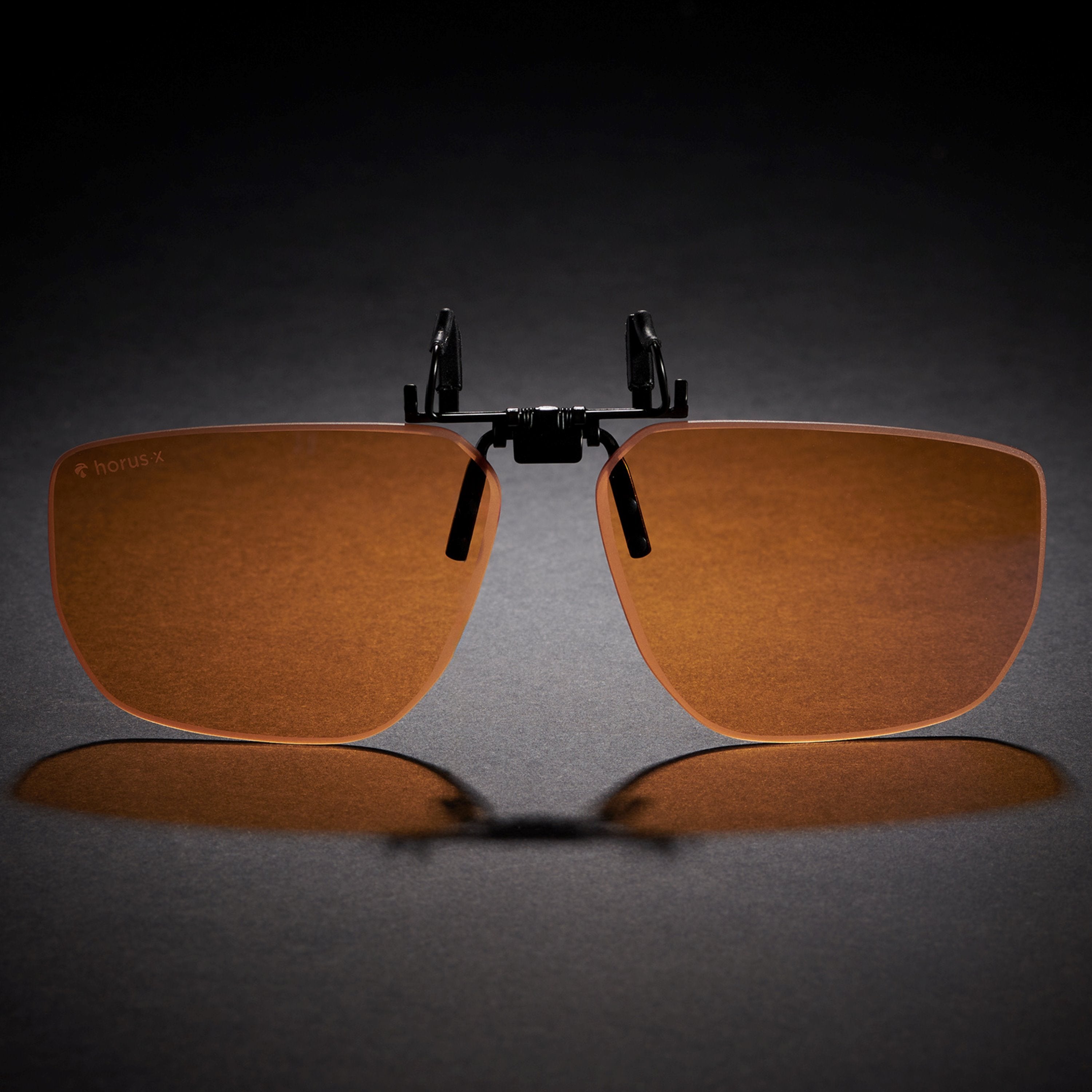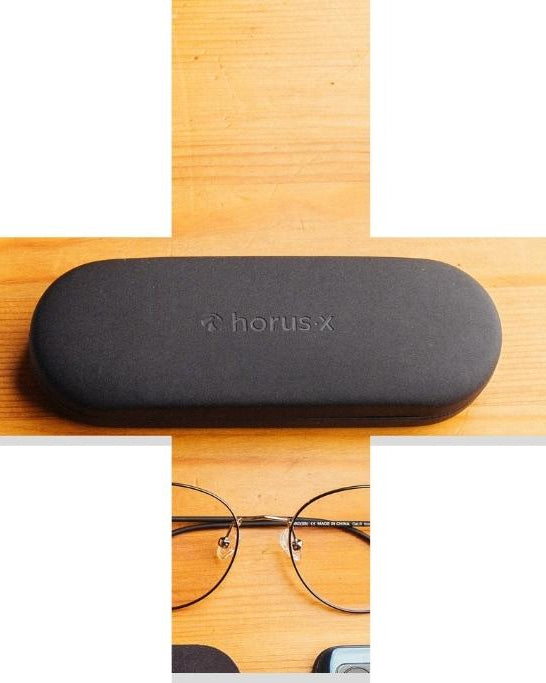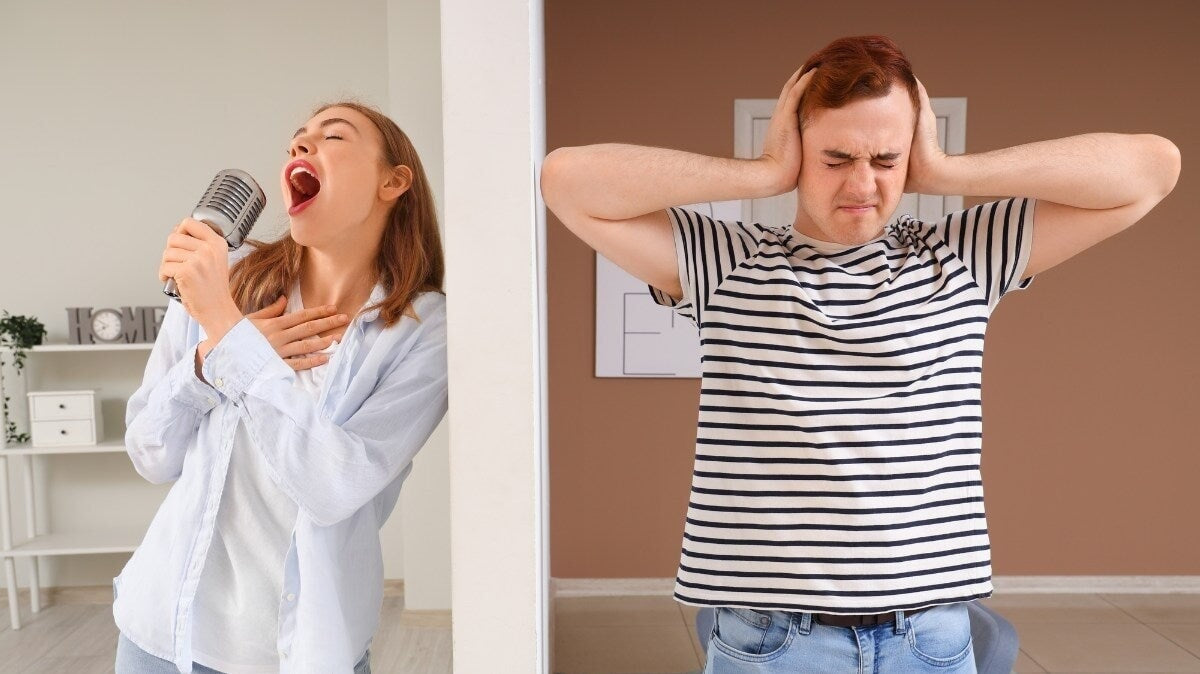11:06 p.m.: You're comfortably settled in bed, your eyelids heavy, but your mind is still wide awake. A notification on your phone reignites hostilities: one last quick browse before bed?
Many of us know this reflex and experience it every night. And yet, it's what can completely ruin your falling asleep, your sleep, even your circadian cycle. Because behind the screen, there's artificial blue light which, when evening comes, can disrupt the extremely fragile mechanics of sleep hormones: cortisol and melatonin, which regulate the wakefulness/wakefulness cycle , your quality of sleep, but also your concentration during the day.
How can too much blue light or exposure at the wrong time affect the quality of our sleep? How does this light influence cortisol secretion , melatonin production and impact our day/night rhythm? That's what we're going to see together!
What is cortisol?

Let's lay the groundwork: in this article, we're going to talk about blue light and hormones. We're going to focus specifically on cortisol, but also melatonin and serotonin .
Cortisol (or hydrocortisone) is a steroid hormone produced by the adrenal glands, which, as the name suggests, are located above the kidneys. It is best known as the stress hormone, or even the survival hormone , but it also plays a role in the sleep/wake cycle (the famous circadian rhythm).
The main effects of cortisol:
- Stress management : This is probably its most well-known role. When faced with physiological or psychological stress, it helps the body put itself into "survival" mode: increased vigilance, mobilization of resources.
- Regulation of blood sugar (blood sugar levels): still under these same conditions, cortisol will cause a greater release of sugar into the blood in order to make all the necessary resources available to your body and brain in record time. It can even stimulate the production of glucose from muscle proteins (what is called gluconeogenesis )
- Day/night rhythm : a little teaser for what follows, cortisol is involved in regulating your biological clock, your sleep/wake rhythm, in short your circadian rhythm .
- Anti-inflammatory effect : In small doses, it regulates inflammation. It is also the basis of several well-known anti-inflammatory treatments, such as corticosteroids, commonly called corticosteroids.
- Metabolism : Always with the aim of responding to a situation of immediate danger, cortisol causes lipolysis (basically, the melting of fat). Be careful, in excess, it can actually promote the storage of these fats, muscle loss, and several metabolic pathologies.
Serotonin, on the other hand, is not a hormone, but a neurotransmitter: it is often called the "happy hormone" because it regulates mood and general well-being. It is from serotonin that our bodies produce melatonin, the sleep and rest hormone.
Now that you can brag about these new scientific concepts, let's remember that with hormones, it's all a question of very precise dosage : the hormonal response can be triggered with a tiny threshold, then reversed at the drop too many. We're not playing with that, it's a clever mix that only your body knows how to make (when it's well regulated, but we'll come back to that).
The link between blue light, cortisol and circadian rhythm
Blue light and cortisol

Cortisol is a hormone produced by our body in response to various stimuli. Normally, its production naturally increases in the early morning , then decreases during the day, influenced by the blue light in the sunlight spectrum.
The mechanism is quite simple: in the retina, in addition to the rods and cones that manage vision, we have photosensitive receptors that capture blue light and serve to inform our internal clock. It is in our brain, at the level of the suprachiasmatic nucleus or SCN (not to be confused with supercalifragilisticexpialidocious, nothing to do with it) that the message is transmitted, then relayed to the hypothalamus and the pituitary gland to stimulate the production of cortisol in the adrenal glands.
But if you expose yourself to this type of light (especially artificial light) in the evening, it will restart the production of this wakefulness hormone right when it should be decreasing. And that's where the problems begin.
💡 Note: the effect obviously depends on the time of day, the duration of exposure and the light intensity.
Blue light, serotonin and melatonin

Melatonin is a bit like the antagonist of cortisol when it comes to circadian rhythm. It prepares the body for sleep by promoting relaxation and rest.
It is still the famous SCN that manages the secretion of melatonin, always influenced (among other things) by natural and artificial light. It will transmit the information to the pineal gland which synthesizes melatonin from serotonin . And it is this transformation that is blocked by blue light when you scroll in the evening, when you should have dimmed the lights, banned screens, or at least worn glasses with an anti-blue light filter .
If you want to know more about the subject, we have prepared a complete guide for you: blue light and melatonin , the sworn enemies.
The harmful effects of blue light: sleep disorders, stress...

To summarize, exposure to blue light in the evening stimulates the secretion of cortisol while inhibiting that of melatonin . The opposite of your natural rhythm, in short.
This explains why exposure to screens, LED bulbs at the end of the day (and the lack of light in the morning) can completely mess up your biological clock.
- 🌙 Negative impact on your nights : it can disrupt sleep, increase nighttime awakenings , and delay falling asleep
- 😴 Daytime fatigue : you sleep badly, you are exhausted, you have trouble concentrating
- 😓 Stress : This imbalance coupled with fatigue can make you more stressed and generate anxiety.
If you want to know more about how light can impact your biological rhythm, we suggest you take a look at our complete guide:the effects of light on humans . And to go even further, for English speakers, here is a very relevant study: The effects of red and blue lights on circadian variations in cortisol, alpha amylase, and melatonin by Figueiro & Rea (2010)
The benefits of blue light (because yes, there are some!)

We tend to demonize it, but blue light is not your enemy . Morning blue light, in particular, is essential for your biological rhythm . It boosts your concentration, gives you a boost to start your morning routine well...
There are even light therapy treatments, blue light acne treatments , to combat seasonal depression for example. This therapeutic use, however, relies on the use of controlled intensity, timing and duration: don't let this be an excuse to hang around on the computer at the end of the day!
Blue light filter glasses, light exposure: our professional advice

Blue light blocking glasses are designed to filter out the blue light emitted by screens or LEDs. Be sure to choose glasses with a quality filter, such as the Horus X screen glasses or gaming glasses (which have the advantage of being stylish, comfortable, and efficient for a very reasonable price... Okay, aren't we overdoing it?)
There's no need to wear blue light blocking glasses all the time either! On the contrary, it would be counterproductive. As we told you above, natural blue light in the morning is essential for boosting cortisol secretion and thus helping you start your day well, so you shouldn't block it.
Screens, blue light and cortisol: a question of timing and dosage!
- Blue light has a direct link to the production of certain hormones. It can increase the secretion of cortisol (the stress hormone, alertness) and inhibit that of melatonin (the sleep hormone). Normally, daylight will regulate this cycle: in the morning, cortisol reaches its peak, in the evening, it's melatonin.
-
This delicate balance can be disrupted by exposure to screens or artificial lighting at the end of the day: your brain receives the message that it's still daytime, cortisol is secreted, and melatonin production is blocked. And that's not good for falling asleep, your sleep, and your well-being.
- Be careful, producing cortisol or exposing yourself to blue light is not necessarily a bad thing! Morning exposure to daylight , which is particularly rich in blue light, is one of the things you can do to reset your natural rhythm and get quality sleep .
- It's exposure to a large amount of blue light in the evening, at the time of day when your body needs to switch to rest mode, that's harmful. So consider banning screens from your bedroom or at least protecting your eyes effectively.













